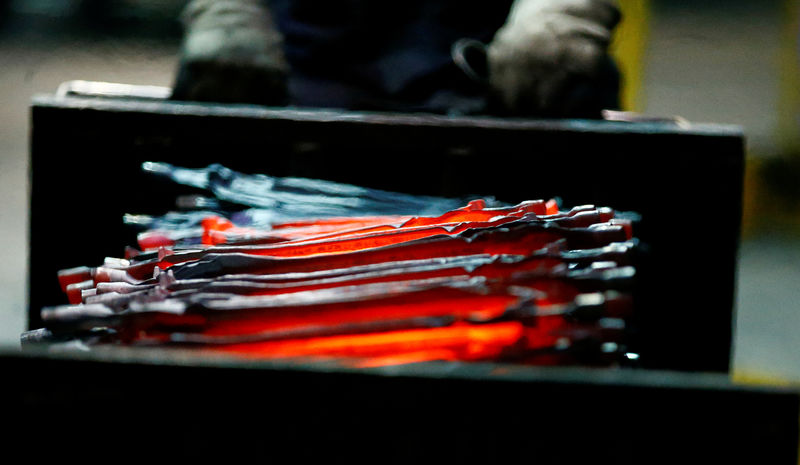BERLIN, (Reuters) - A weakening global economy, risks linked to Britain's possible departure from the European Union without a deal and trade disputes pushed activity in Germany's manufacturing sector to contract at its fastest rate since July 2012, a survey showed on Monday.
Markit's Purchasing Managers' Index (PMI) for manufacturing, which accounts for about a fifth of the economy, fell to an 80-month low reading of 44.1, down from 47.6 in February and lower than the flash reading of 44.7.
It was the third successive month that the index was below the 50.0 mark that separates growth from contraction.
"Both total new orders and export sales are now falling at rates not seen since the global financial crisis, with more and more firms reporting lower demand linked to Brexit, trade uncertainty, troubles in the automotive industry and generally softer global demand," said IHS Markit's Phil Smith.
New orders posted their steepest drop since April 2009.
Weakening exports have translated into a slowdown in Europe's biggest economy, which posted its lowest growth rate in five years last year.
The economy has been relying on consumption for growth. A robust labor market, rising wages and low interest rates have been supporting the consumption-driven cycle.
"Manufacturing output fell markedly and at the fastest rate since 2012, with the consumer goods sector joining intermediate and capital goods producers in contraction," said Smith.
He added: "The sustained solid growth in employment prior to March had been the sector's one remaining bright spot, but the latest survey indicated a fall in jobs for the first time in three years amid reports from a number of firms that some temporary contracts weren't being renewed."

Detailed PMI data are only available under license from Markit and customers need to apply to Markit for a license.